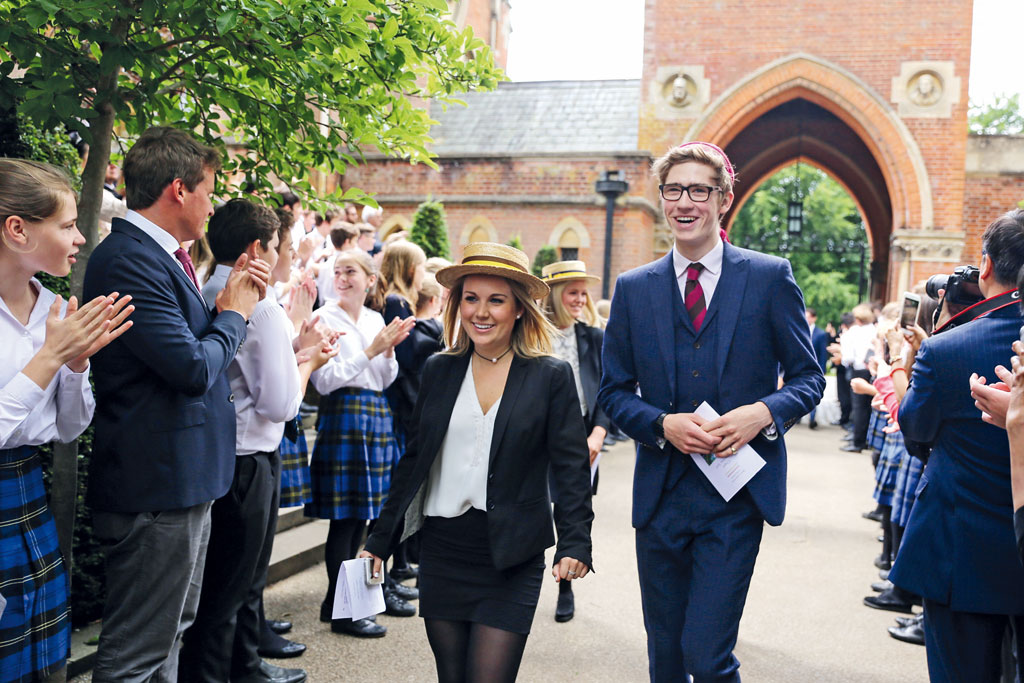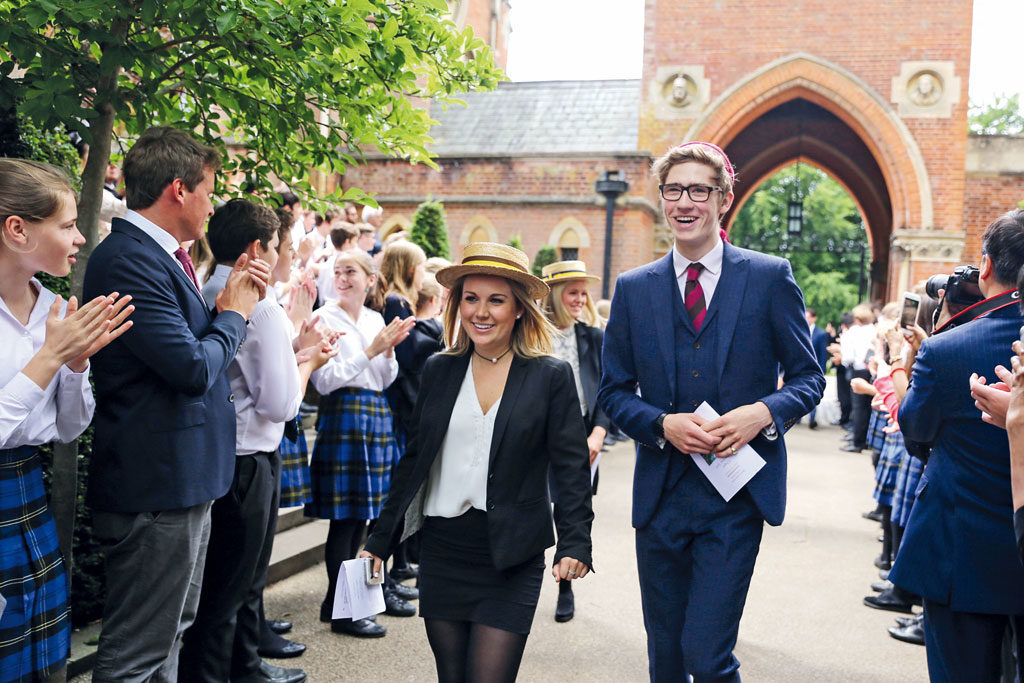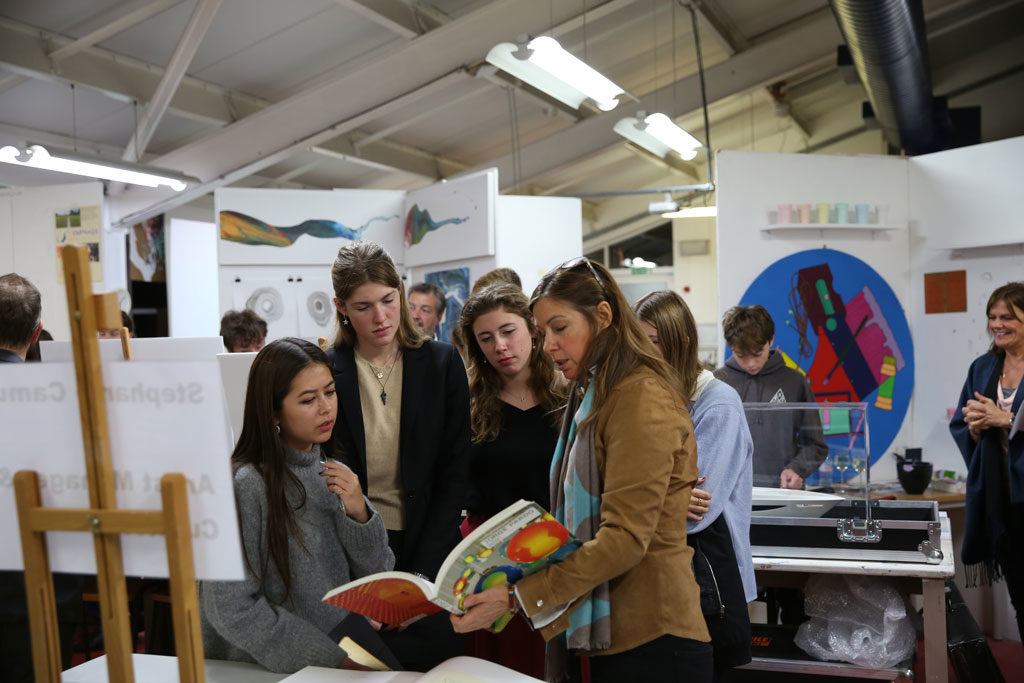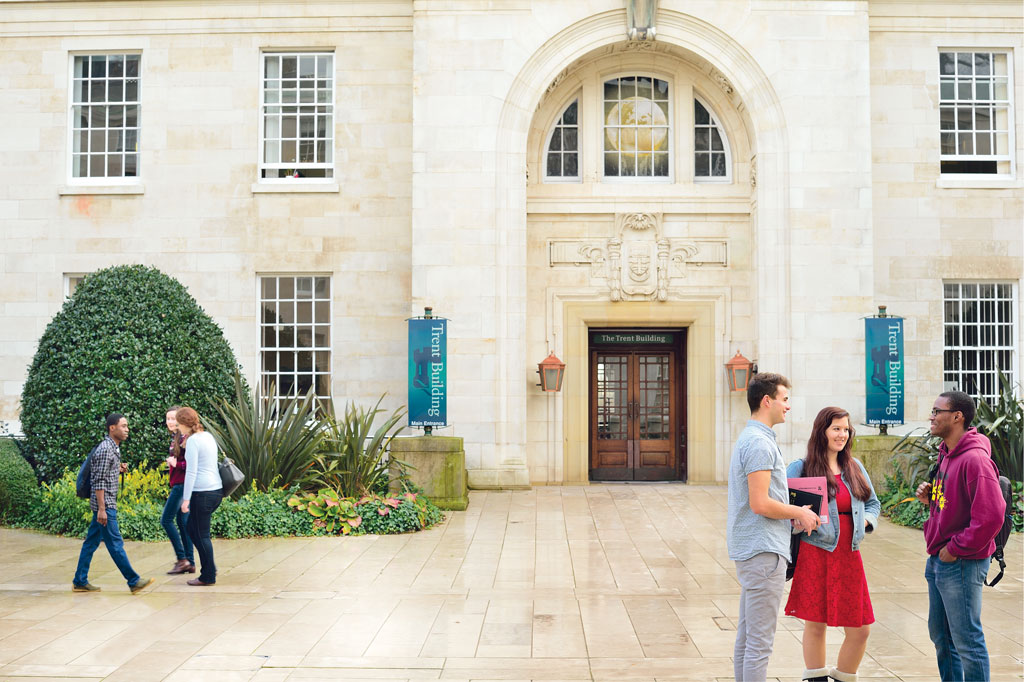
- HOME
- EDUCATION
School Leaver Advice: Transitioning With Success
From tax loopholes to learning how to unblock a U-bend, here's everything you might need to know and more
By | 6 years ago
Sally Jones has some advice on how to manage the transition from sixth former to undergraduate.
You want either a first or a fourth,’ Cousin Jasper pompously advises Charles Ryder as he arrives at Oxford, in Evelyn Waugh’s cult novel Brideshead Revisited. ‘Time spent on a good second is time thrown away. Clothes. Dress as you do in a country house. Never wear a tweed coat and flannel trousers – always a suit… You’ll find you spend half your second year shaking off the undesirable friends you made in your first… Beware of the Anglo-Catholics – they’re all sodomites with unpleasant accents. In fact, steer clear of all the religious groups.’
Not exactly the counsel that most modern-day school leavers receive these days, particularly now that fourth class degrees are history. Few students except Jacob Rees-Mogg have worn tweed jackets for decades and discrimination on grounds of religion or sexual orientation is taboo. As school leavers prepare to move on, however, advice from their immediate seniors remains crucially important.

Wellington College teaches its students to be academic self-starters
Earn as You Learn
Perhaps the first question should be university or an apprenticeship? Although 91 per cent of independently educated pupils still opt for university, growing numbers now choose to ‘earn as they learn’. Claire Granados, director of Quest Professional, which runs courses preparing school leavers and graduates to enter the job market, believes that careers education should include more options outside academia.
‘With average independent school fees around £286,000 over a pupil’s career,’ she explained, ‘sending children to an elite school can often be viewed as a fast-track to a Russell Group University. Apprenticeships offered by the likes of Rolls Royce, KPMG and Barclays, though, can see young professionals emerge on salaries far higher than the average university graduate. Similarly, business apprenticeships or executive PA courses allow students to enter the job market quickly and gain the lead over their peers at university. I believe schools should overhaul the current focus on UCAS, and instead teach practical skills including teamwork, time-management, interview skills and sector awareness.’
Global accountanting firm BDO is one of the top firms offering high-level apprenticeships to school leavers. ‘University isn’t for everyone,’ explains BDO Partner Graham Elsworth. ‘The thought of leaving with tens of thousands of pounds of debt can be a real deterrent and some people want to start working and earning straight away. Our School Leaver Programme is pretty competitive as it offers bright, talented young people the chance to do just that and gain their professional qualifications as they build a successful career. We fund all their training – and the people who come top of our entrance tests aren’t always the graduates but often clued-up school leavers.’
‘Increasingly our students are considering alternatives to university,’ said Warwick School’s Director of Careers and Employability, Caty Oates. ‘One Old Warwickian decided university wasn’t for him so we helped him look at the options and gave him interview practice and he’s now applying for an IBM apprenticeship including a degree course. Degree apprenticeships are competitive but great for the right person. Another boy is doing Jaguar Land Rover’s accountancy apprenticeship, so it’s not just engineering on offer.

Claire Granados, director of Quest Professional, believes that careers education should include more options outside academia
Thriving as an Undergraduate
If you do opt for university, however, it takes some skill to hit the ground running academically while finding new friends, making sure you are happy and safe and coping with Freshers’ Week. The first week at university offers a melting pot of competing clubs and activities, most offering free beer and pub crawls to entice unwary freshers to sign up.
The word on the street is don’t over do it. Continue with one or two interests you love or excel at – and try a couple of new ones that take your fancy. University is the time to broaden horizons and meet a gang of new mates while holding onto your old friends.
Freshers’ reps are an invaluable source of information on everything from free concerts to which pubs and clubs to avoid – and how and when to fix up accommodation for your second year. At Exeter, for example, students have to organise housemates for the next year by the end of the first term: fine for outgoing, gregarious types but a nightmare for anyone shyer and without a large circle of friends. One colleague’s daughter offered a word of hard-won advice: ‘Try to avoid relationships with fellow-housemates if at all possible,’ she insisted ruefully. ‘I went out with one of mine – and he then started seeing another housemate. It made my second year really traumatic and having paid upfront for the year’s accommodation, I couldn’t immediately afford to move out.’
Not everyone bounces back from the inevitable upsets and disappointments of student life. The sad statistic of rising numbers of young suicides, through loneliness, anxiety and the proliferation of Ecstasy-type illegal drugs has galvanised many universities into boosting their pastoral care. At Nottingham, each fresher is assigned both a ‘parent’ and ‘grandparent’ (a second and third year undergraduate) to help them cope and check on their progress.

At Nottingham University, each fresher is assigned a ‘parent’ and ‘grandparent’
Money Matters
For most students, money is a constant battle, particularly those who have taken on eye-watering levels of debt via a student loan. Before committing to an expensive degree and associated costs, investigate possible savings. Many universities offer scholarships and bursaries such as Oxbridge’s lucrative organ and choral scholarships and sports awards, particularly at centres of excellence like Bath and Loughborough. Most American universities offer valuable full fees places, often including travel and accommodation, to those with the right mix of sporting prowess and academic attainment.
Even without bursary help, thinking laterally can pay dividends. Growing numbers of families, not just the super-rich, are using tax planning strategies to help their children most effectively. If parents are feeling the pinch, the ‘grey pound’ could provide the answer, thanks to an unexpected tax loophole.
‘Unlike parents, grandparents can make regular payments to grandchildren out of surplus income placed in equity-based investments,’ explained Simon Dunkley of Merlin Financial Services. ‘The grandparents won’t be taxed on the dividend income from these, providing the payments don’t affect their standard of living. These regular gifts will fall outside the grandparents’ estate for Inheritance Tax straight away without them needing to live the standard seven years. Any income from these investments is usually well below the grandchild’s personal allowance (currently £11,850 in the 2018/19 tax year). By contrast, if a parent set up the same arrangement, any income over £100 per annum would be taxed at their highest marginal tax rate.’
Good advice is crucial; carefully written wills and the use of trusts also enable families, especially grandparents, to help
youngsters through their cash-strapped university years.’
Even with a few bob from granny to boost your income, careful financial planning is as vital as choosing the right course. ‘We organise sessions on student finance for our sixth formers, outlining the difference between loans, fees and bursaries, plus guidance on how to budget and manage money effectively,’ said Laura Quigley, Head of Careers at King Edward VI High School for Girls, Birmingham (KEHS). ‘We also make sure the students thoroughly research the course they aim to do beforehand, particularly course content at their target universities, as this can differ significantly. Our enrichment programme, covering areas like contraception, plus drug and alcohol awareness, introduces managing being away from home for the first time. Wellbeing is crucial, too, and we advise everyone to explore mental health provision at university open days. If this is not visible, that rings alarm bells.’
Back to Basics
Although boarding school pupils have already experienced living away from home, most need to acquire basic life skills. Gordonstoun prides itself on building its pupils’ self-reliance, both academically and through extra-curricular activities, from serving in the school’s own Fire Brigade to Coastguard duties. The Year 12 students taking part in its Futures Week at the end of the summer term are even taught – along with CV writing and the UCAS application process – crucial techniques for everyday living like unblocking a sink U-bend, putting up a shelf, electrical skills, sewing on a button, basic first aid, cooking and even self-defence.
Wellington College too focuses on independent learning and a broad curriculum, teaching its students to be academically self-reliant and flourish at university. ‘We encourage our students to make positive decisions but also to recognise potential pitfalls,’ said Wellington’s Head of Sixth Form Guy Williams. ‘The Lower Sixth have sex and consent workshops, clarifying what consent means plus a detailed drugs education programme and sessions on E-safety. Our Life Experience talks are particularly valuable: people who’ve learned hard lessons, sharing their wisdom, like a former criminal talking about what it’s like to go to prison.’
Future Planning
Wellington, like many independent schools, leverages the power of its alumi networks and in 2016 launched Wellington Connect, an online professional networking platform with over 2,500 members prepared to mentor and offer work experience to pupils past and present. One student, currently at university, who left Wellington in 2014 has completed a successful internship with advertising agency Adam and Eve thanks to an Old Wellingtonian (OW) contact.
‘I was initially invited to the agency for two weeks,’ he said, ‘but asked back for a third to help out on an upcoming pitch. I love it and definitely want to end up here after uni finishes. I’ve been kept very busy with many briefs and competitor reviews. I’m also still in touch with the OW, who’s being incredibly useful in finding me more experience, for which I am very grateful.’
Past Experiences
Peer advice remains a persuasive element in planning the next stage of your career. ‘We ask a group of Upper Sixth to talk to the Lower Sixth about how they decided where to apply and what course for,’ said James Vaughan-Fowler, Head of Careers Education at St Edward’s School, Oxford. ‘This helps explain a range of choices in the UK and elsewhere. Likewise we invite former pupils to come back after five years and talk to our present Lower Sixth about what university was like and their experience of finding work. This is a fascinating exercise for teachers and Lower Sixth alike.’
‘It’s useful to ask slightly older alumni for advice, academic and practical,’ agreed Jo Whitehead, KEHS Head of Sixth Form, ‘such as what it’s like to study on a particular course, or finding suitable accommodation. One Birmingham University accommodation block near the county cricket ground, for instance, sounds as though it’s in a salubrious area but used to be near a red light district!’
Putting it into Perspective
Most people settle into university well but if things don’t work out, it’s not the end of the world. Jo Whitehead continues, ‘We make sure girls realise it’s normal to feel homesick initially, but if they don’t want to go back after Christmas, it may mean they’ve made the wrong choice and I always support them to find an alternative. One pupil changed from reading psychology to training as a paramedic after enjoying being a support worker on their gap year.’
Total flexibility is the key at this stage and many believe it would help if everyone applied to university after A-levels. Youngsters are treated at adults at 18; I say it takes another year – and a really well-constructed gap year helps consolidate what they actually want to do.’
READ MORE: What Is The Super-Curriculum? | At What Price? The Press of Exams and Assessment Today
This article was originally published in the AW18 issue of School House Magazine.



